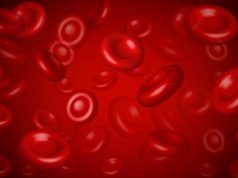Reduced CD4 count linked to higher risk for opportunistic infection and invasive cancer, lower risk for autoimmunity
By Elana Gotkine HealthDay Reporter
THURSDAY, May 4, 2023 (HealthDay News) — Idiopathic CD4 lymphocytopenia (ICL) is associated with increased risk for opportunistic infection and invasive cancer, according to a study published in the May 4 issue of the New England Journal of Medicine.
Andrea Lisco, M.D., Ph.D., from the National Institutes of Health in Bethesda, Maryland, and colleagues examined the clinical, genetic, immunologic, and prognostic characteristics of 108 patients with ICL who were enrolled during an 11-year period. Whole-exome and targeted gene sequencing were performed to identify genetic causes of lymphopenia. After the exclusion of patients with genetic and acquired causes of CD4 lymphopenia, 91 patients with ICL were included in the study, with 374 person-years of follow-up.
The researchers found that among the patients, the median CD4+ T-cell count was 80 cells per mm3. Diseases related to human papillomavirus, cryptococcosis, molluscum contagiosum, and nontuberculous mycobacterial diseases were the most prevalent opportunistic infections (in 29, 24, 9, and 5 percent, respectively). Compared with a CD4 count of 101 to 300 cells, a reduced CD4 count (<100 cells/mm3) was associated with an increased risk for opportunistic infection and invasive cancer (odds ratios, 5.3 and 2.1, respectively) and with a lower risk for autoimmunity (odds ratio, 0.5). A similar risk for death was seen to that in the age- and sex-adjusted general population, but a higher prevalence of cancer was observed.
“Although our study patients did not have a higher short-term risk of death than that in the general population, the increased cancer prevalence supports primary and secondary cancer preventive strategies in ICL management,” the authors write.
Abstract/Full Text (subscription or payment may be required)
Copyright © 2023 HealthDay. All rights reserved.








